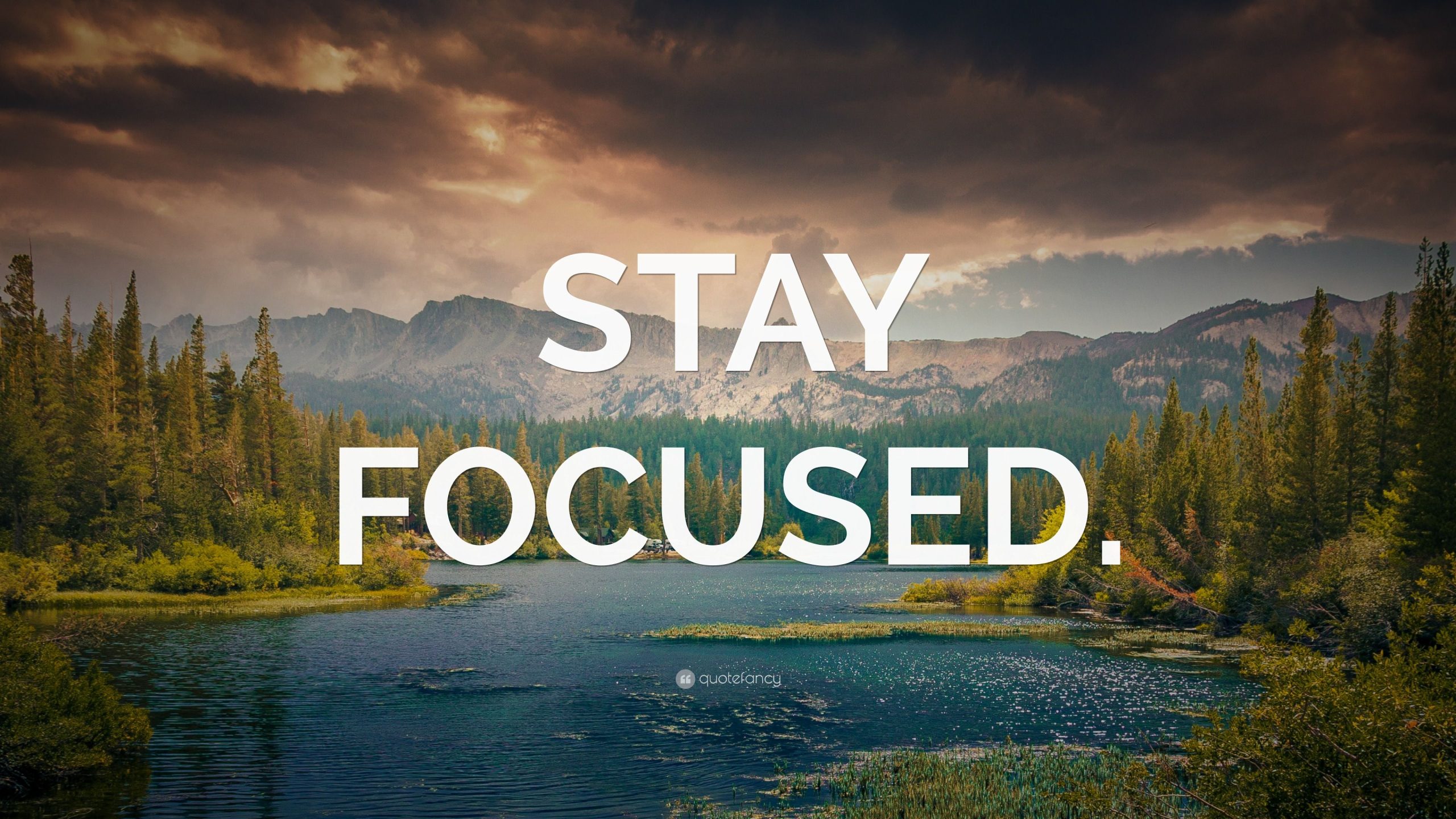
Germany, a land where medieval fairytales meet cutting-edge innovation, where ancient forests whisper tales of yore and vibrant cities hum with contemporary culture, offers an unparalleled travel experience. From the majestic Alps to the serene Baltic coast, its diverse landscapes and rich tapestry of history beckon millions each year. Deciding where to stay in Germany is not just about finding a bed; it’s about choosing an immersion into a particular facet of its multifaceted soul. This comprehensive guide will navigate you through its top attractions, delve into its fascinating history, offer essential travel tips, explore myriad accommodation options, explain its efficient transportation networks, and pinpoint the best times to visit, ensuring your German adventure is perfectly tailored.
Germany’s Enduring Allure: A Brief Historical Overview
Germany’s history is a saga of empires, reformation, wars, and remarkable rebirth. From its Roman frontier days along the Limes to the Holy Roman Empire, the fragmented states of the Middle Ages, and the rise of Prussia, its past has shaped its current identity. The Reformation, led by Martin Luther in the 16th century, left an indelible mark on its spiritual and intellectual landscape. The 19th century saw its unification under Bismarck, leading to the two devastating World Wars of the 20th century. Post-WWII, Germany was divided, leading to the Cold War’s iconic symbol, the Berlin Wall. Its reunification in 1990 marked a new chapter, fostering a period of cultural and economic resurgence.

Related Articles about Where to Stay in Germany: A Comprehensive Guide to its Enchanting Landscapes and Vibrant Cities:
- Las Vegas: The Luminous Oasis in the Desert
- Unveiling the Treasures of Qatar: A Comprehensive Guide to its Top Attractions
- Abu Dhabi: A Symphony of Tradition and Tomorrow
- Unveiling the Magic: Your Ultimate Guide to the Top Attractions in New York City
- Busan: A Coastal Gem of South Korea
This rich, often tumultuous, history is palpable across the country. Ancient Roman ruins can be explored in Trier, medieval castles dot the Rhine, Baroque palaces stand testament to princely power in Dresden and Potsdam, and the solemn memorials of Berlin confront the horrors of the 20th century. Understanding this historical backdrop enhances every visit, transforming mere sightseeing into a profound journey through time.
Navigating Germany: Transportation & Connectivity
Germany boasts one of the most efficient and comprehensive transportation networks in the world, making travel between its diverse regions remarkably easy.
- Trains (Deutsche Bahn – DB): The backbone of German travel. High-speed ICE (Intercity-Express) trains connect major cities swiftly, while regional trains (RE, RB, S-Bahn) serve smaller towns and rural areas. Booking in advance, especially for ICE tickets, can yield significant savings. Various passes, like the German Rail Pass for tourists or Länder-Tickets for regional day travel, offer excellent value.
- Roads (Autobahn): Famous for sections without speed limits, Germany’s autobahn system is extensive and well-maintained. Renting a car offers unparalleled flexibility, especially for exploring scenic routes like the Romantic Road or the Black Forest. However, city driving and parking can be challenging and expensive.
- Flights: Major international airports in Frankfurt, Munich, Berlin, Düsseldorf, and Hamburg serve as key gateways. Domestic flights are efficient but often pricier and less scenic than train travel for shorter distances.
- Local Public Transport: German cities excel in integrated public transport systems (U-Bahn, S-Bahn, trams, buses). Day passes or multi-day tickets are usually the most cost-effective options for exploring urban areas.
- Buses: Long-distance bus services (e.g., FlixBus) offer a budget-friendly alternative to trains, particularly for popular routes.

The Best Time to Visit Germany
Germany offers distinct charms in every season, catering to different travel preferences.
- Spring (April-May): Mild temperatures, blooming flowers (especially cherry blossoms in Bonn), and fewer crowds make spring ideal for city sightseeing and hiking. Prices are generally lower, and events like Easter markets add to the charm.
- Summer (June-August): Warmest months, perfect for outdoor activities, lake swimming, beer gardens, and festivals. However, it’s peak tourist season, meaning higher prices and larger crowds at popular attractions. Booking accommodation well in advance is essential.
- Autumn (September-October): A truly magical time. September brings Oktoberfest in Munich (book months ahead!), while wine regions along the Rhine and Moselle celebrate the grape harvest. The landscape bursts with vibrant fall foliage, making it ideal for scenic drives and hikes. November sees the early opening of some enchanting Christmas markets.
- Winter (November-March): Cold but wonderfully atmospheric. Germany’s world-renowned Christmas markets (late November to December 24th) transform cities into festive wonderlands. Skiing in the Alps and Black Forest is popular, and cultural events abound. Outside of Christmas and ski resorts, prices are generally lower.
Where to Stay: Unpacking Germany’s Diverse Regions & Cities
Choosing your base depends on your interests, whether it’s bustling city life, serene nature, or historical immersion.
I. Major Metropolises & Cultural Hubs
1. Berlin: The Capital of Cool & History
- Why Stay Here: Germany’s vibrant capital is a living museum, pulsating with history, cutting-edge art, diverse cuisine, and legendary nightlife. From the iconic Brandenburg Gate and the poignant Berlin Wall Memorial to world-class museums on Museum Island and the Reichstag Dome, Berlin demands multiple days of exploration.
- Top Attractions: Brandenburg Gate, Reichstag Building, Berlin Wall Memorial, Checkpoint Charlie, Museum Island, East Side Gallery, Charlottenburg Palace.
- Accommodation Options: Berlin offers a vast array, from luxurious five-star hotels (e.g., Hotel Adlon Kempinski) near the Brandenburg Gate to trendy boutique hotels in Mitte and Prenzlauer Berg, budget-friendly hostels in Kreuzberg and Friedrichshain, and stylish apartment rentals. Stay in Mitte for central access to major sights, Prenzlauer Berg for a bohemian vibe, or Charlottenburg for upscale shopping and historical elegance.
2. Munich: Bavarian Charm & Alpine Gateway
- Why Stay Here: The capital of Bavaria blends traditional charm with cosmopolitan flair. Famous for its beer gardens, opulent palaces, and proximity to the Alps, Munich is a cultural powerhouse. It’s also the gateway to Bavaria’s fairytale castles.
- Top Attractions: Marienplatz (Glockenspiel), Hofbräuhaus, English Garden, Deutsches Museum, Nymphenburg Palace, Oktoberfest (late Sept/early Oct).
- Accommodation Options: Munich has excellent hotels, from grand establishments like Bayerischer Hof to charming guesthouses (Pensionen) near the city center. The Altstadt (Old Town) is ideal for first-timers, while Lehel offers luxury and Haidhausen a trendy, local feel. During Oktoberfest, book months in advance, as prices skyrocket.
3. Hamburg: Maritime Marvel & Nightlife Hub
- Why Stay Here: Germany’s second-largest city and a major port, Hamburg is a city of canals, bridges (more than Venice!), and impressive architecture. Its UNESCO-listed Speicherstadt (warehouse district) and modern HafenCity contrast with the infamous Reeperbahn nightlife district.
- Top Attractions: Speicherstadt, Elbphilharmonie, Miniatur Wunderland, St. Michaelis Church, Reeperbahn.
- Accommodation Options: Stay in HafenCity for modern luxury with water views, Altona for a more residential and bohemian vibe, or St. Georg for proximity to the main train station and diverse dining. Hotels range from international chains to unique boutique stays.
4. Frankfurt: Financial Powerhouse & Cultural Gem
- Why Stay Here: Often seen as just a financial hub, Frankfurt is also a city of impressive museums, a beautifully reconstructed Old Town (Römer), and a surprisingly cozy atmosphere. It’s a major international airport hub, making it a convenient starting or ending point for a German tour.
- Top Attractions: Römerberg, Städel Museum, Goethe House, Main Tower, Eiserner Steg (Iron Bridge).
- Accommodation Options: Most hotels cater to business travelers but are excellent for tourists. The Bahnhofsviertel (station district) offers convenience but can be gritty. Sachsenhausen on the south bank of the Main River is known for its traditional Apfelwein (cider) taverns and a more local feel, while Westend is elegant and quiet.
5. Cologne: Cathedral Grandeur & Roman Roots
- Why Stay Here: Dominated by its magnificent UNESCO-listed Gothic cathedral, Cologne boasts a rich Roman past, vibrant Carnival celebrations, and a lively arts scene. Its location on the Rhine makes it a popular starting point for river cruises.
- Top Attractions: Cologne Cathedral (Kölner Dom), Roman-Germanic Museum, Old Town, Hohenzollern Bridge (love locks), Carnival (Feb/March).
- Accommodation Options: Stay near the Cathedral and Hauptbahnhof for ultimate convenience. The Altstadt (Old Town) offers charming, traditional hotels. Belgisches Viertel (Belgian Quarter) is trendy with boutique hotels and independent shops.
II. Fairytale Castles & Romantic Roads (Bavaria & Southern Germany)
1. Füssen/Schwangau: Neuschwanstein & Hohenschwangau
- Why Stay Here: The gateway to King Ludwig II’s fantastical castles, Neuschwanstein and Hohenschwangau. This region offers stunning Alpine scenery, hiking, and proximity to the Austrian border.
- Top Attractions: Neuschwanstein Castle, Hohenschwangau Castle, Alpsee Lake.
- Accommodation Options: Charming guesthouses (Gasthöfe), small hotels, and Ferienwohnungen (vacation apartments) are plentiful in Füssen and the surrounding villages like Schwangau. Book well in advance, especially during peak season, as castle tours sell out quickly.
2. Heidelberg: Romantic River & Castle Ruins
- Why Stay Here: Home to Germany’s oldest university, Heidelberg exudes romantic charm with its majestic castle ruins overlooking the Neckar River, picturesque Old Town, and the Philosopher’s Walk.
- Top Attractions: Heidelberg Castle, Old Town, Karl Theodor Bridge, Philosopher’s Walk.
- Accommodation Options: Boutique hotels in the Old Town offer a historic experience, while modern hotels are available outside the pedestrian zone. Many guesthouses provide excellent value.
3. Rothenburg ob der Tauber: Medieval Masterpiece
- Why Stay Here: The quintessential German medieval town on the Romantic Road, Rothenburg’s perfectly preserved city walls, cobblestone streets, and half-timbered houses transport you back in time.
- Top Attractions: Medieval city walls, Plönlein, Christmas Museum, Käthe Wohlfahrt Christmas Village.
- Accommodation Options: Historic inns and boutique hotels within the old city walls provide an atmospheric stay. Consider staying overnight after the day-trippers leave to experience its quiet charm.
III. The Rhine Valley & Black Forest (Western & Southwestern Germany)
1. Rhine Valley: Castles, Wine & Legends
- Why Stay Here: The UNESCO-listed Upper Middle Rhine Valley is famous for its dramatic castles, steep vineyards, charming villages, and legendary Loreley Rock. River cruises are a popular way to experience it.
- Top Attractions: Dozens of castles (Marksburg, Burg Pfalzgrafenstein), Rüdesheim am Rhein, Loreley Rock, wine tastings.
- Accommodation Options: Riverside hotels in towns like Bacharach, Boppard, or Rüdesheim offer scenic views. Guesthouses and family-run hotels are common.
2. Black Forest (Schwarzwald): Nature & Wellness
- Why Stay Here: A region of dense evergreen forests, charming villages, cuckoo clocks, and thermal spas. Ideal for hiking, biking, and relaxation.
- Top Attractions: Triberg Waterfalls, Lake Titisee, Baden-Baden (spa town), Open-Air Museum Vogtsbauernhof, scenic drives (e.g., Schwarzwaldhochstraße).
- Accommodation Options: Spa hotels in Baden-Baden or Titisee-Neustadt, traditional guesthouses in smaller villages, and farm stays (Ferien auf dem Bauernhof) offer a rustic experience.
IV. Eastern Gems: History & Revival
1. Dresden: Baroque Beauty Reborn
- Why Stay Here: Known as the "Florence on the Elbe," Dresden’s stunning Baroque architecture, including the Frauenkirche and Zwinger Palace, has been meticulously restored after wartime destruction. It offers a powerful testament to resilience.
- Top Attractions: Frauenkirche, Zwinger Palace, Semperoper (opera house), Brühl’s Terrace, Green Vault.
- Accommodation Options: Historic hotels near the Altstadt (Old Town) provide elegance. The Neustadt (New Town) offers a younger, livelier vibe with boutique hotels and apartment rentals.
2. Leipzig: Music, History & Dynamic Culture
- Why Stay Here: A city rich in musical history (Bach, Mendelssohn, Wagner) and a pivotal site in the Peaceful Revolution of 1989. Leipzig is now a vibrant, artistic hub with beautiful arcades, a thriving arts scene, and excellent museums.
- Top Attractions: St. Thomas Church (Bach’s burial place), Monument to the Battle of the Nations, Auerbach’s Cellar, Museum of Fine Arts.
- Accommodation Options: Hotels range from modern chains to charming boutique establishments. The city center is convenient, while areas like Plagwitz offer trendy loft apartments and a more alternative atmosphere.
V. Coastal Charms: North & Baltic Seas
For those seeking beaches and maritime tranquility, Germany’s North Sea and Baltic Sea coasts offer charming islands (Sylt, Rügen) and seaside resorts (Warnemünde, Timmendorfer Strand). Accommodation here often includes resort hotels, vacation rentals, and guesthouses, ideal for family holidays.
Accommodation Options in Detail
Germany offers a vast spectrum of lodging to suit every budget and style:
- Hotels: Ranging from luxurious five-star establishments (e.g., Kempinski, Steigenberger) to international chains (e.g., Hilton, Marriott, Ibis) and independent boutique hotels. Many offer breakfast (Frühstück) included.
- Hostels (Jugendherbergen/Hostels): Excellent for budget travelers, offering dorms and private rooms. German youth hostels are often high quality and well-maintained.
- Guesthouses (Pensionen/Gasthöfe): Family-run, traditional, and often more personal than hotels. They typically offer comfortable rooms and a hearty German breakfast, particularly common in rural areas and smaller towns.
- Vacation Rentals (Ferienwohnung/Ferienhaus): Apartments or houses available for short-term rent. Ideal for families, groups, or longer stays, as they often include kitchens and living areas, offering more space and flexibility. Websites like Booking.com, Airbnb, and local tourism boards are good resources.
- Unique Stays: Germany boasts charming castle hotels, traditional farm stays, treehouses, and even glamping sites for a memorable experience.
- Campsites: Numerous well-equipped campsites are available across the country, particularly popular in scenic regions like the Alps and along the coasts.
Essential Travel Tips for Germany
- Language: German is the official language. While English is widely spoken in major cities and tourist areas, learning a few basic German phrases (Guten Tag, Danke, Bitte, Entschuldigung) will be appreciated.
- Currency: The Euro (€). Credit cards are widely accepted, but it’s wise to carry some cash, especially in smaller towns or for local markets.
- Tipping: Customary but not mandatory. Rounding up the bill or adding 5-10% for good service in restaurants and taxis is common.
- Safety: Germany is generally very safe. Exercise standard precautions, especially in crowded tourist areas or on public transport at night.
- Power: Standard European two-pin plugs (Type F or E). Voltage is 230V. Bring a universal adapter.
- Etiquette: Punctuality is valued. Germans appreciate orderliness; queue politely, and don’t jaywalk.
- Booking in Advance: Crucial for high season (summer, Oktoberfest, Christmas markets), especially for popular attractions and unique accommodations.
- Travel Insurance: Highly recommended to cover unforeseen circumstances like medical emergencies, trip cancellations, or lost luggage.
- VAT Refunds: Non-EU residents can claim VAT refunds on eligible purchases. Ask for a "Tax-Free" form at participating stores.
Conclusion
Germany is a land of captivating contrasts, where ancient history coexists with modern dynamism, and breathtaking natural beauty blends seamlessly with vibrant urban centers. Whether you dream of tracing the footsteps of emperors in Berlin, raising a stein in Munich, cruising past fairytale castles on the Rhine, or hiking through the mystical Black Forest, there’s a perfect place to stay that will enhance your journey. By understanding its diverse regions, efficient transport, and varied accommodation options, you can craft an unforgettable German adventure, one that promises rich cultural immersion, historical enlightenment, and memories to last a lifetime. Pack your bags, brush up on a few German phrases, and prepare to be enchanted by the heart of Europe.





